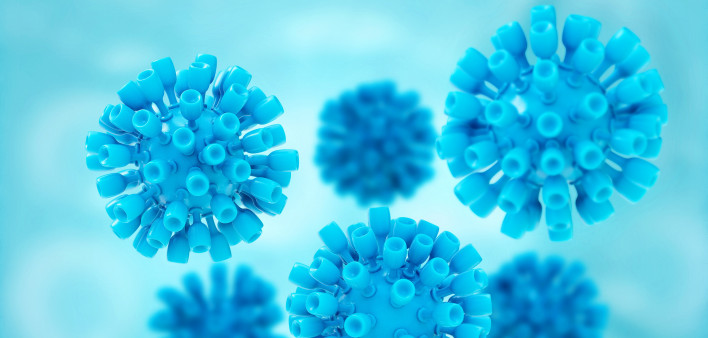Gilead Sciences’ first human trial of its investigational capsid inhibitor, known as GS-6207, has found that the antiretroviral (ARV) suppressed HIV well. In a separate laboratory study analyzing how low levels of the drug may drive drug resistance, results were also promising.
GS-6207 is a long-acting ARV that can be injected subcutaneously, or under the skin. The Food and Drug Administration (FDA) recently granted the drug a breakthrough therapy designation for its potential as treatment for people with HIV who have used numerous ARVs and who have multidrug-resistant virus.
The drug attacks HIV in a way unlike any approved ARV: It interrupts the activity of the virus’s capsid, which is a protein shell encasing genetic material and enzymes. It is possible that GS-6207 also interrupts a number of other stages of the viral life cycle inside immune cells.
Findings from the two studies of GS-6207 were presented in a pair of posters at the 10th International AIDS Society Conference on HIV Science in Mexico City (IAS 2019).
In an ongoing Phase Ib trial, 24 people with HIV who had not previously been treated with a capsid inhibitor received one subcutaneous injection of GS-6207. They were randomized into three even groups of six people each to receive a 50 milligram, 150 mg or 450 mg dose of the drug or a placebo.
Ten days after their injection, those who received GS-6207 experienced an average maximum reduction in viral load of 98.4% to 99.3% (1.8 to 2.2 log10). All these reductions were significantly greater than that seen among those who received the placebo.
None of the participants experienced a serious adverse health event or dropped out of the study because of adverse health events. The most common adverse events were mild to moderate reactions at the point of injection, experienced by 63% (15 of 24) of the participants.
In a separate laboratory study, researchers studied the emergence of resistance to GS-6207 in HIV-infected cells when the drug was administered at levels below the threshold considered appropriate for treating the virus. In this context, the drug prompted HIV to develop mutations related to the viral capsid known as L56I, M661, Q67H, K70N, N74D/S and T107N.
Virus that had at least one of these mutations had a diminished response to GS-6207 but had no such reduction in its susceptibility to other classes of ARVs. Such drug resistance was commonly associated with a compromised ability of HIV to infect cells as well as an impaired capacity to replicate within cells.
To read the human study abstract, click here.
To read the laboratory study abstract, click here.







Comments
Comments